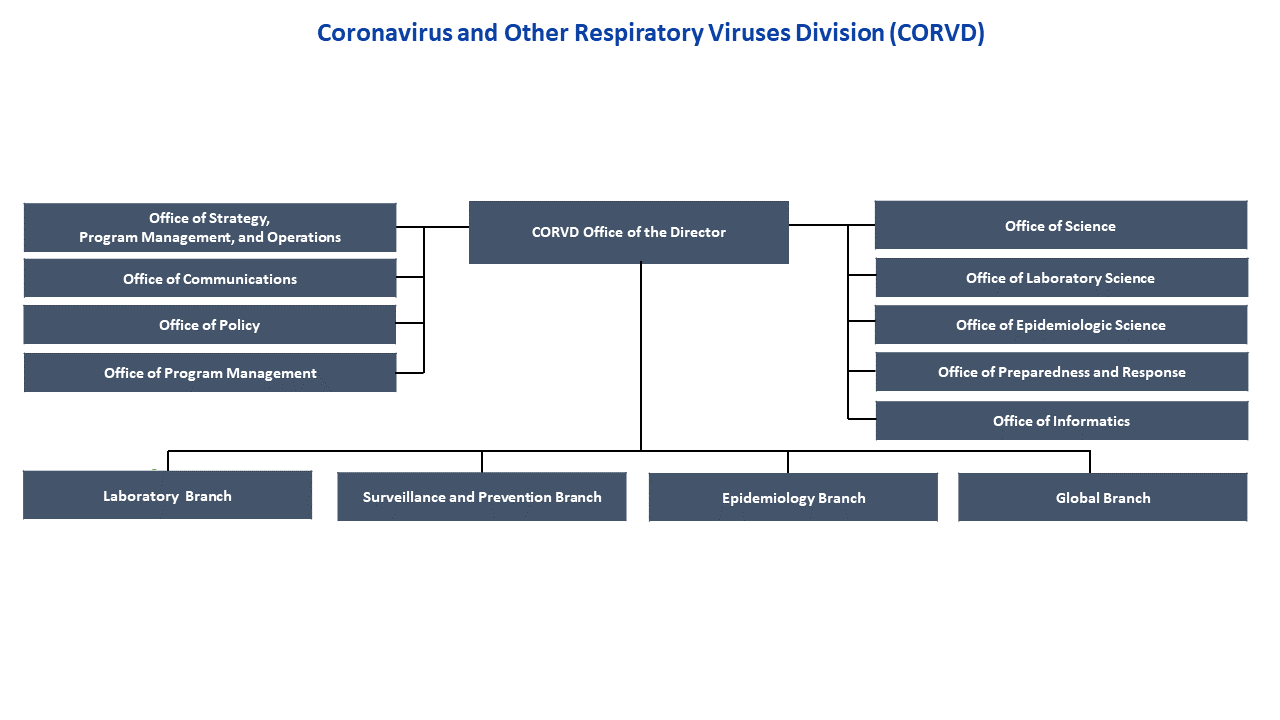Key points
- The Coronavirus and Other Respiratory Viruses Division (CORVD) works to improve the health of people in the United States and globally.
- The division seeks to prevent illness, disability, and death from respiratory viruses while promoting public health science and practice.
Our mission
The mission of CORVD is to improve public health and prevent disease from respiratory viruses.
Priorities
CORVD is focused on improving public health and preventing disease from respiratory viruses by:
- Developing and communicating timely knowledge of impact of respiratory viruses.
- Identifying and characterizing respiratory viruses.
- Improving and promoting effective prevention and control strategies.
- Strengthening preparedness for outbreaks, epidemics, and pandemics.
- Operating in alignment with the priorities of the U.S. Government (USG), including the U.S. Department of Health and Human Services (HHS), other centers within the CDC, and other divisions within the National Center for Immunization and Respiratory Diseases (NCIRD); our organizational values; and effective strategy, management, policy, and communication practices.
Our work
CORVD is organized into four branches:
- Laboratory Branch – The Laboratory Branch develops and implements laboratory methods for the detection and characterization of novel, emerging, and known respiratory viruses.
- Epidemiology Branch – The Epidemiology Branch conducts epidemiologic studies on respiratory virus infection, transmission, short- and long-term outcomes, and effectiveness of treatment and prevention to inform clinical and public health actions.
- Surveillance & Prevention Branch – The Surveillance & Prevention Branch monitors trends in medically attended illness, disease burden, and vaccine effectiveness for coronavirus and other respiratory viruses to inform vaccine policy and other prevention strategies.
- Global Branch – The Global Branch implements and monitors respiratory virus surveillance systems and surveys around the world through training, ongoing technical support, laboratory strengthening, and continual monitoring of program performance.
CORVD topics include:
- Respiratory adenoviruses
- Coronaviruses such as SARS-CoV-2, Middle East respiratory syndrome (MERS) coronavirus, and seasonal human coronaviruses
- Human metapneumovirus (HPMV)
- Human parainfluenza viruses (HPIVs)
- Parvoviruses
- Respiratory syncytial virus (RSV)
- Rhinoviruses and respiratory enteroviruses

